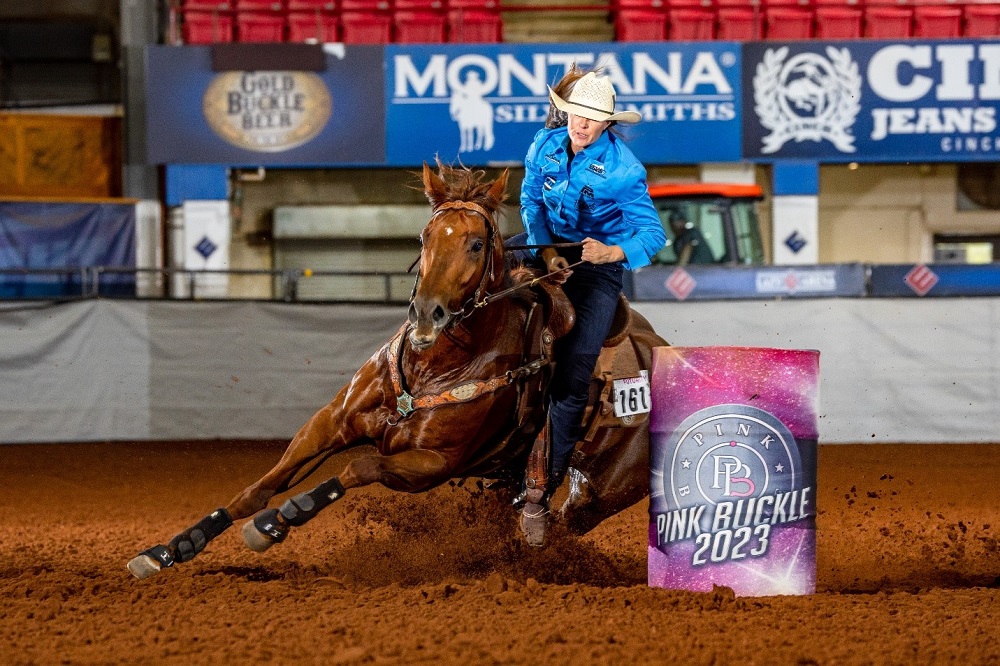Wondering whether natural or synthetic vitamin E supplements for horses offer the best health benefits? The right supplement is crucial for muscle function, immune health, and overall performance.
Vitamin E is an essential antioxidant that helps protect cells from oxidative damage, supports neurological function, and aids in recovery from illness or injury. However, horses cannot produce vitamin E on their own, so they must obtain it through forage or supplementation.
Fresh pasture is the best natural source, but supplementation becomes necessary if your horse primarily consumes hay or commercial feeds. However, not all vitamin E supplements are formed equally—natural and synthetic forms differ in their absorption, effectiveness, and bioavailability.
Let’s break down these differences to help you choose the best vitamin E supplement for horses.
What is Vitamin E, and Why Do Horses Need It?
Vitamin E is a fat-soluble antioxidant critical in maintaining muscle health, immune function, and neurological stability in horses. It helps prevent damage caused by free radicals, which can accumulate due to physical exertion, stress, or illness.
Horses that lack adequate vitamin E levels may experience:
- Muscle weakness, stiffness, or atrophy
- Neurological issues, including equine degenerative myeloencephalopathy (EDM)
- Poor coat quality and slow recovery from injuries
- Compromised immune function, which leads to increased susceptibility to infections
Fresh green pasture is the best natural source of vitamin E, but its levels decline rapidly in stored hay. This makes supplementation essential for horses with limited pasture access, high-performance demands, or health concerns.
Role of Vitamin E in Your Horse's Body
Vitamin E supplements for horses are crucial, serving multiple vital functions:
- Antioxidant Defense: It acts as a primary antioxidant, defending cells from oxidative damage caused by free radicals.
- Neuromuscular Support: Vitamin E is essential for maintaining normal neuromuscular function, aiding in the prevention of diseases like equine neuroaxonal dystrophy (eNAD) and equine degenerative myeloencephalopathy (EDM).
- Immune System Enhancement: Adequate levels of vitamin E support the immune system, enhancing the body's ability to combat infections and recover from illness.
Ensuring your horse receives sufficient vitamin E is vital for its overall health and performance.
Natural vs. Synthetic Vitamin E: What's the Difference?
The differences between natural and synthetic vitamin E supplements for horses are:
|
Aspect |
Natural Supplement |
Synthetic Supplement |
|
Isomer |
D-alpha-tocopherol (single isomer) |
Dl-alpha-tocopherol (eight isomers) |
|
Source |
Nuts, vegetable oil, and seeds |
Chemically derived from petrochemicals |
|
Structure |
RRR-alpha-tocopherol |
Eight isomers, out of which only one is similar to the natural version |
|
Bioavailability |
Better absorption and tissue retention |
Lower absorption |
|
Labeling |
Labelled as d-alpha-tocopherol and d-alpha-tocopheryl acetate |
Labelled as dl-alpha-tocopherol and dl-alpha-tocopheryl acetate |
Key Takeaways and Additional Points:
- Natural vitamin E (d-alpha-tocopherol) contains a single isomer, while synthetic vitamin E (dl-alpha-tocopherol) contains a mix of eight isomers.
- Synthetic vitamin E is not absorbed or utilized as efficiently as natural forms. To achieve the same levels in the bloodstream, a horse must consume more of the synthetic form (approx 1.36 to 2 times).
- Synthetic vitamin E is generally less expensive than natural vitamins.
- Synthetic vitamin E has the advantage of maintaining stability over time in stored feed, making it a helpful addition to horse feeds. Some feeds utilize a combination of natural and synthetic vitamin E to take advantage of both the higher bioavailability of natural vitamin E and the stability of synthetic vitamin E.
- Recommendation: The National Research Council recommends that horses consume 1-2 international units (IU) per kilogram of body weight of vitamin E daily. This equates to 500-1,000 IU for a 1,100-pound horse.
- Blood Test: Establishing a baseline blood vitamin E level is important to determine if your horse is deficient
How to Improve Vitamin E Absorption?
Fresh, natural sources of vitamin E are prioritized to improve the absorption of vitamin E in horses. Fresh green grass is ideal. However, if you do not find high-quality fresh green grass, choose vitamin E for horse supplements.
These supplements should be made from natural and water-soluble forms to absorb them better. The better the supplement is absorbed, the better the bioavailability of vitamin E.
Natural Sources of Vitamin E
The natural sources of vitamin E are:
- Fresh green grass pastures are rich in vitamin E.
- Hay could be an alternate source of vitamin E to fresh green grass. However, stored hay shows declining vitamin E levels, especially those cut later to alfalfa.
- As fat-soluble, vitamin E's absorption is enhanced in fat-containing dietary food.
Determining Your Horse's Vitamin E Needs
The age, activity levels, and overall health of your equine all play a key role in determining your horse's vitamin E requirements.
It is always advisable to consult your equine nutritionist or veterinarian before putting your horse on vitamin E supplements for horses.
Here is a more comprehensive breakdown:
Factors Influencing Your Horse's Vitamin E Requirements
There are several influence your horse's vitamin E requirements:
1. Age
If the horse is young, it will have higher vitamin E requirements for growth and development.
2. Activity Level
Horses training or engaging in strenuous activities require more vitamin E to compensate for their increased oxidative stress.
3. Health Status
If your horse is experiencing any health conditions, such as muscle problems or a compromised immune system, it may require more vitamin E.
4. Nutritional Status
If you feed your equine a diet that is either low in fats or high in certain grains, you are likely to lower its absorption of vitamin E.
Monitoring and Adjusting Your Horse's Vitamin E Levels
Here are a few ways to monitor and adjust your equine’s vitamin E levels:
1. Testing Blood Serum
Regularly check your equine's serum concentrations of alpha-tocopherol to monitor his levels of vitamin E. If you see any imbalance, adjust his supplementation accordingly.
2. Consult Your Equine Nutritionist
Consult your equine nutritionist or horse veterinarian to choose the appropriate dosage and form of vitamin E supplement for your horse.
3. Consider Dietary Fats
Consider including sufficient fat in your equine's diet if you use vitamin E supplements. Fat helps your equine absorb vitamin E from the supplements.
Natural vs. Synthetic: Which Vitamin E Supplement is Best for Your Horse?
For horses needing therapeutic vitamin E support, natural d-alpha-tocopherol in water-soluble form is the best option due to superior absorption and utilization. While synthetic vitamin E may suffice for maintenance in commercial feeds, it is less effective in raising blood vitamin E levels.
Horses with limited pasture access, high-performance demands, or metabolic concerns benefit most from high-quality, natural vitamin E supplements that are easily absorbed and adequately dosed.
Final Words
Natural sources of vitamin E are ideal for your horse, as they are more potent and bioavailable than synthetic varieties.
Vitamin E offers several neurological and stress-related benefits to your horse. Deficiency of this vitamin may result in muscular weakness, neurological issues, dry, damaged coat, and eye damage. Hence, as a horse owner, you should pay close attention to including vitamin E supplements for horses.
Support Your Horse’s Health with MedVetPharm
Are you looking for horse joint supplements? At Med-Vet Pharmaceuticals, we provide premium joint supplements for horses to support mobility, flexibility, and overall joint health.
Our expertly formulated supplements contain key ingredients to promote cartilage health, reduce stiffness, and enhance comfort for horses of all ages and activity levels.
Explore our products, and if you need expert guidance, contact us or call us at 833-809-4848.

